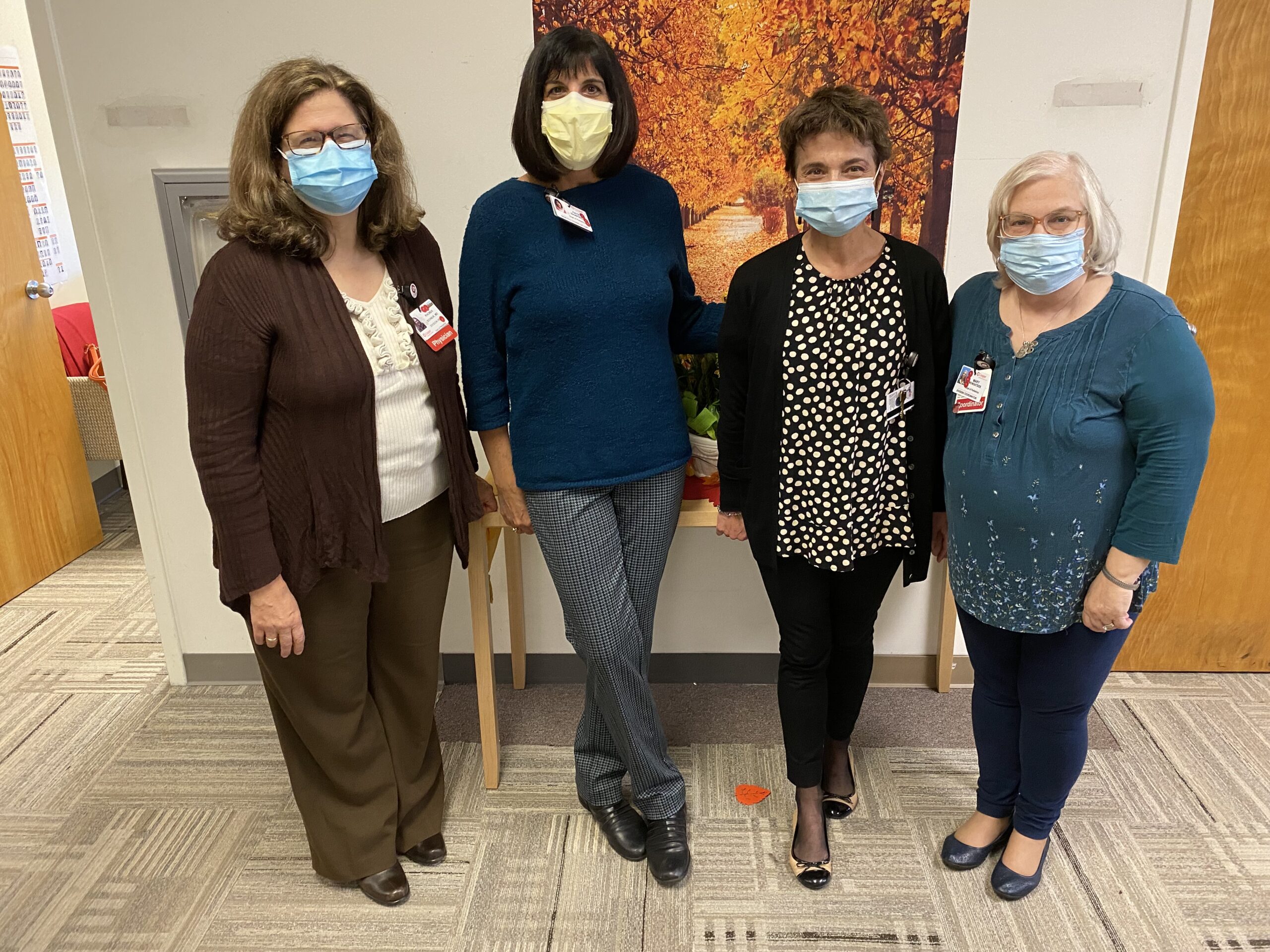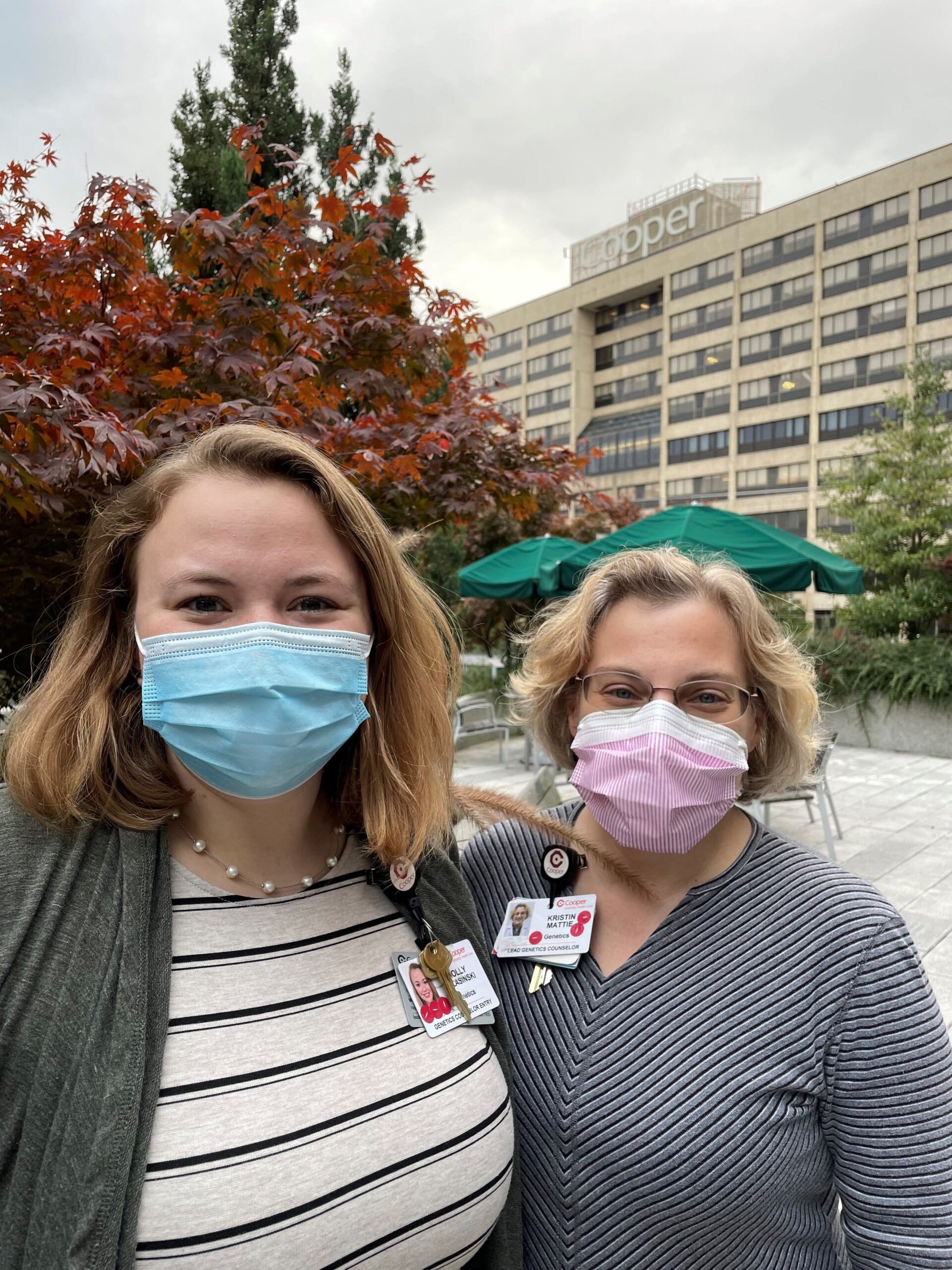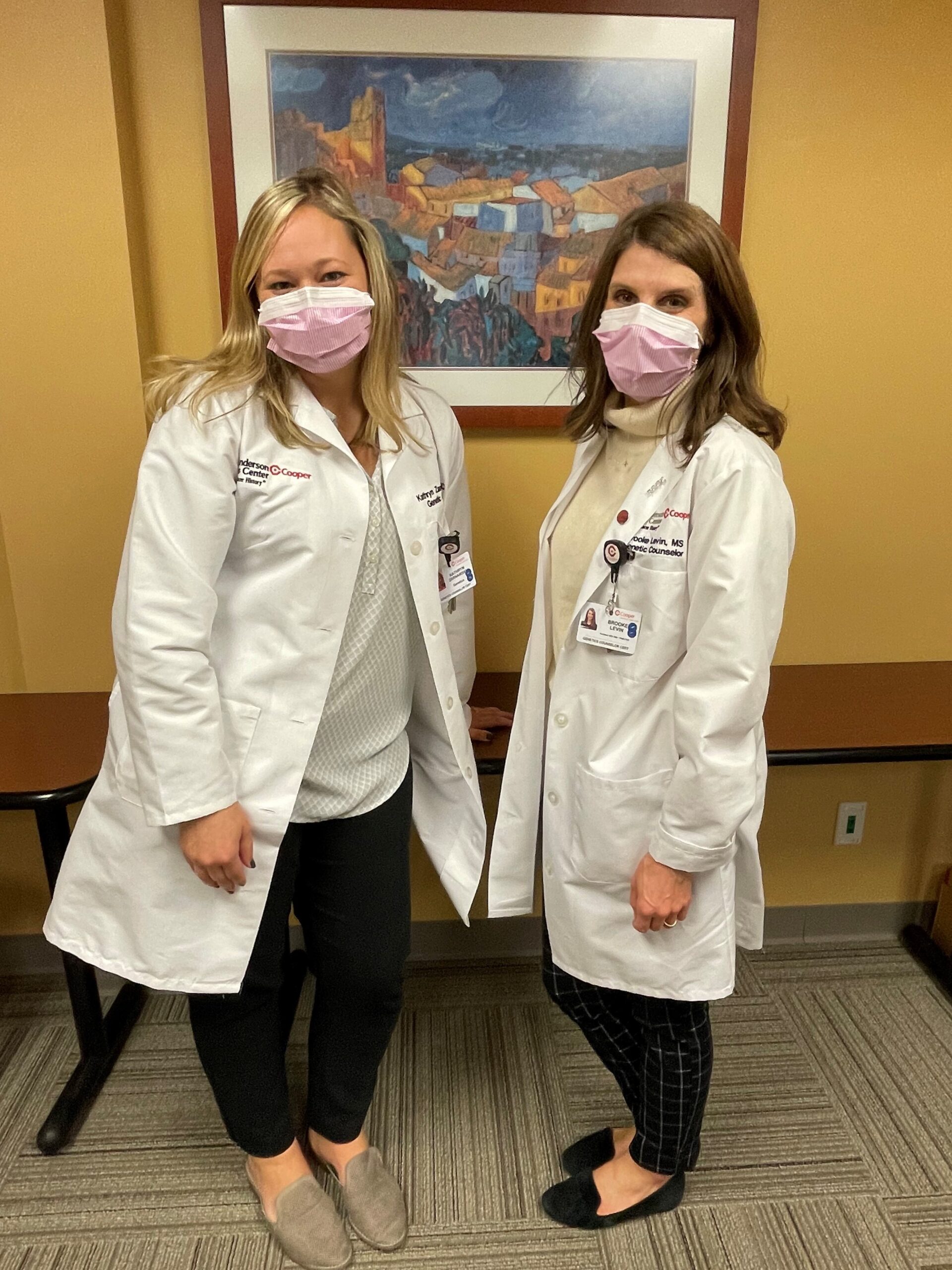November 4 is Genetic Counselor Awareness Day. Cooper’s team of genetic counselors help evaluate and support patients who are seeking more information about how inherited diseases and conditions may affect them or their families.
According to the National Society of Genetic Counselors, “you may be referred to a genetic counselor by a doctor (such as an obstetrician, oncologist or medical geneticist) to discuss your family history and genetic risks, or before or after having genetic testing. While genetic counselors are not medical doctors, they are part of your health care team and work with you and your doctor to help you understand your genetic risks based on your family history, your genetic risks for certain diseases or cancer, whether genetic testing might be right for you, and what the results of genetic tests may mean for you and your family. With expertise in counseling, genetic counselors can also provide emotional support as you make decisions and empower you with information for your overall health care.”
Our thanks to Faye Shapiro, MS, CGC, genetic counselor with the Pediatric Genetics Program at Children’s Regional Hospital at Cooper, and Molly E. Kalasinski, MS, LCGC, a licensed genetics counselor with the Cancer Genetics Program at MD Anderson Cancer Center at Cooper, for sharing a bit more about the role of our genetics teams at Cooper.
What does it take to be a genetic counselor?
Genetic counselors are health care professionals who have completed a master’s program that involves about two years of didactic coursework and clinical rotations in a variety of genetic counseling settings including general genetics, cancer genetics, prenatal genetics, and more. After graduation, genetic counselors are required to pass a national certification exam by the American Board of Genetic Counseling. Some states, including New Jersey, require licensure to practice.
When does a genetic counselor become involved in patient care?
“In the pediatric setting, we work closely with the medical geneticist to evaluate patients and support parents seeking more information about how inherited diseases and conditions might be affecting their child or children,” says Faye Shapiro, MS, CGC, a genetic counselor with Children’s Regional Hospital at Cooper. “Our primary responsibilities are to obtain family and medical histories; explain difficult concepts of genes and chromosomes in a way families can understand; help determine which test is most appropriate for them; explain the benefits, limitations, and potential risks of genetic testing; and lastly, help explain meaning of the results and potential risks to the individual and other family members. Genetic counselors also provide emotional support and help connect families with other families and support groups with similar conditions. ”
“In the cancer genetics world, genetic counselors work with individuals with a personal and/or family history of cancer, discuss hereditary cancer syndromes, and evaluate if an individual may benefit from genetic testing,” says Molly E. Kalasinski, MS, LCGC, a licensed genetics counselor with MD Anderson Cancer Center at Cooper. “Genetic counselors discuss how genetic test results impact an individual and other people in the family. Genetic testing results may help provide an explanation for cancers in the family and provide guidance for appropriate cancer screening and/or risk management. Test results may also offer additional information for medical providers to make alterations to one’s cancer treatment or management. Patients are typically referred due to a personal or family history of less common types of cancer, cancers diagnosed at an early age, typically under 50, and/or who have multiple members of the family diagnosed with the same or similar types of cancer. Individuals are encouraged to speak with their medical care team to determine if cancer genetic counseling is appropriate for them.”
How do genetic counselors work with Cooper patients?
“At Children’s Regional Hospital at Cooper, our team consists of two genetic counselors, Faye Shapiro and Maria Irene Scarano, along with Dr. Rhonda Schnur, a clinical geneticist. We see children of all ages for evaluation of birth defects, developmental delays, chromosome abnormalities, autism, hearing loss, and many other health problems to help parents figure out why their child is affected,” Shapiro adds. “We can also see adults, often referred by other specialists, who are concerned about possibly having an inherited condition, either due to their own symptoms or due to a positive family history that puts them at risk.”
“At MD Anderson Cancer Center at Cooper, we have a team of five genetic counselors: Alexandra Barbarese, Brooke Levin, Kathryn Zarnawski, Kristin Mattie, and Molly Kalasinski. Our counselors work alongside oncologists, breast surgeons, and advanced practice nurses in several outpatient clinic locations in Camden, Voorhees, and Cherry Hill,” Kalasinski explains. “Typically, our counselors meet with adult patients for an initial consultation to discuss their options for genetic testing. If the patient elects to proceed with testing, our counselors are also involved in the follow up and results disclosure along with a physician or APN to discuss medical recommendations. High-risk patients are routinely followed every one to two years to ensure the recommendations are up to date and/or to determine if there is any additional updated testing to recommend. Genetic testing technology has advanced and grown over the years, so some individuals who have previously had hereditary cancer genetic testing may qualify for additional updated testing. Our counselors often see multiple individuals in a family, especially if one member is found to have an inherited risk for cancers on genetic testing.”
What do you hope patients understand about the role of genetic counselors?
“We can help you understand how genes play a role in your health, from common familial traits to complex medical conditions,” Shapiro says. “This knowledge may help guide treatment and management and potentially improve outcomes.”
Kalasinski adds: “What I love about being a genetic counselor is hearing the stories of so many families and working with them to provide education and testing coordination where appropriate. Every family is different and I appreciate the opportunity to take part in their care.”
Where do I learn more about genetic testing at Cooper?
To learn more about our Cancer Genetics Program, please click here.
To learn more about our Pediatric Genetics Program, please click here.




